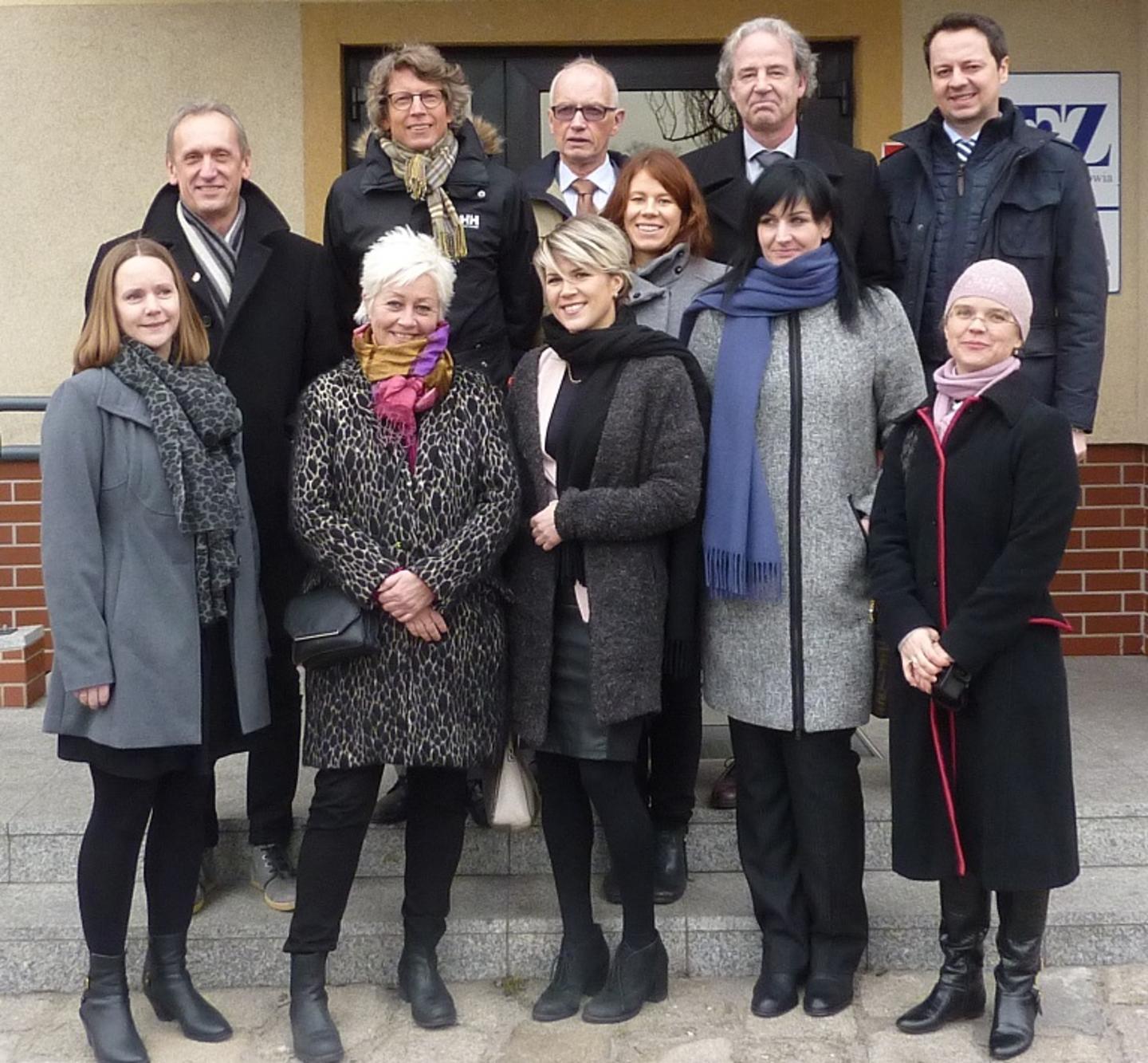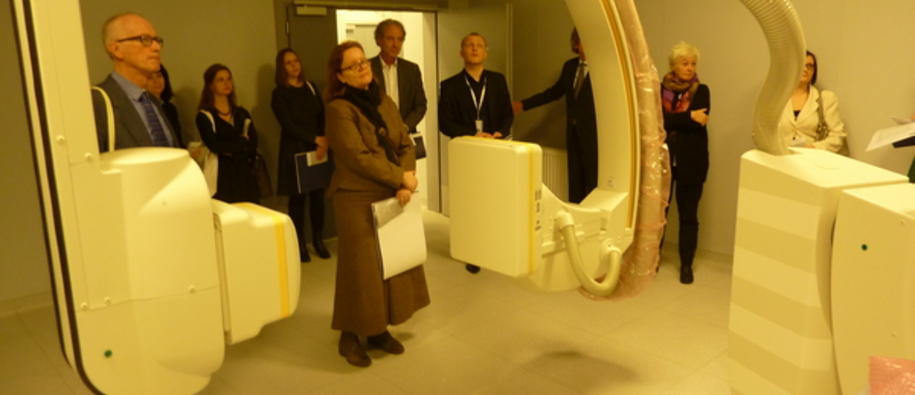The Norwegian Directorate of Health is the donor programme partner for the ’Public Health Initiatives’ in Poland. Bilateral relations are key to the programme’s success, bringing much-needed expertise, particularly in tackling inequalities in health and improving access to health services.
In order to strengthen bilateral cooperation, an intensive study programme was organised by the Polish Ministry of Health in cooperation with Norwegian Directorate of Health. The programme explored the different levels of government involved in health care and their roles, the scale of cross-sectoral cooperation and the quality and impact of the projects already being implemented. The visit involved a wide range of different activities, from deliberations at the Ministry of Health and meeting with university students, to project visits. EEA and Norway Grants funded visits ranged from local community projects aime at improving long-term care for the elderly, to hospital based projects to improve the diagnosis of and screening for cancer.
“I’m happy to witness the positive effects of the EEA Grants and Norway Grants in the health sector. To some extent, Polish public health challenges are similar to those in Norway in terms of non-communicable diseases, such as drug and alcohol abuse. During the visit we looked at areas where bilateral cooperation could reap benefits,“ said Innherred local authority’s Coordinator of Public Health, Dina von Heimburg.
“We have some real outcomes as a result of this visit, including plans for more cooperation at a local goverment level. I think the visit has been very beneficial for both Norwegian and Polish health actors. We have a lot to learn from each other,“ said Polish Ministry of Health, Senior Expert, Hubert Życiński.
Care for the elderly and dependent people
Part of the visit included visits to two projects aimed at improving the quality of and access to health services for elderly people. Pleszew Nursing Home Director, Grzegorz Grygiel, found the visit inspiring:
“We had the opportunity to share our experience and learn about the functioning of the public-health system in Norway. We have a cooperation agreement with Abildsø Nursing Home and the Centre for the Development of Institutional and Home Care Services in Oslo, this is very valuable to us.“
Cancer diagnosis and prevention
Another visit included a trip to Poznań to a project that has improved the diagnosis and treatment of cancer in Wielkopolska. The study programme didn't just look at diagnosis and treatment, it also focused on prevention. The group met with Polkowice Poviat Governor, Mr Marek Tramś:
“It was great to be able to present the projects we are implementing and show how our health centre works. We will use the experience for our next project which is about the prevention of lung cancer.“
Norwegian Cancer Society Secretary General, Anne Lise Ryel, highlighted that many Polish people now live in Norway and that they may be at risk of cancer, or might have relatives in Poland with cancer.
“I think that the Norwegian Cancer Society can be of much help to our sister organisations in Poland. Through cooperation we can share our knowledge on cancer and patient support with Polish NGOs working in this field,“ she said.
Oncology of Wielkopolska - improving and adapting the diagnosis and treatment of cancer for demographic and epidemiological trends in the region with the provision of the optimization of treatment and prevention
'Things get done'
“We are impressed by the pride and enthusiasm of the Polish people, when visiting EEA and Norway Grants funded projects. The Polish have the three most important ingredients for making progress: will, enthusiasm and pride in their work. I have enjoyed working with the Polish people, things get done and they get done well. Perhaps it takes longer than planned, but the result is always good,“ said Dr Rø.
* Back row: Maciej Karpinski - Leader of culture and economic development, Frøya municipality; Stein Inge Nesvåg – Counsellor, Embassy of Norway in Warsaw; Otto Christian Rø – Senior Adviser, Norwegian Directorate of Health; Jens J. Guslund - Norwegian Directorate of Health; Hubert Życiński - Senior Expert, Polish Ministry of Health
Front row: Kristin Strømskag - Coordinator of public health, Frøya municipality; Anne Lise Ryel - Secretary General, Norwegian Cancer Society; Dina von Heimburg - Coordinator of Public Health, Innherred; Kadri Miard - Adviser, Norwegian Directorate of Health; Anette Tiller - Coordinator of local, preventive measures against drugs and crime, Innherred municipality; Karina Gradowska-Karpinska – Adviser, Embassy of Norway in Warsaw.
To find about more about the visit, click on the links below.
To read more about the full study visit
’Oncology in Wielpolska – improving and adjusting diagnosis and treatment of cancer’
Article in Polish: Read an article about how the Grants support health initiatives in Rawicz in the February issue of the self-government bulletin in Rawicz (PDF)
Read more about EEA Grants support for Public Health Initiatives in Poland
Read more about the Norway Grants support for Public Health Initiatives in Poland

